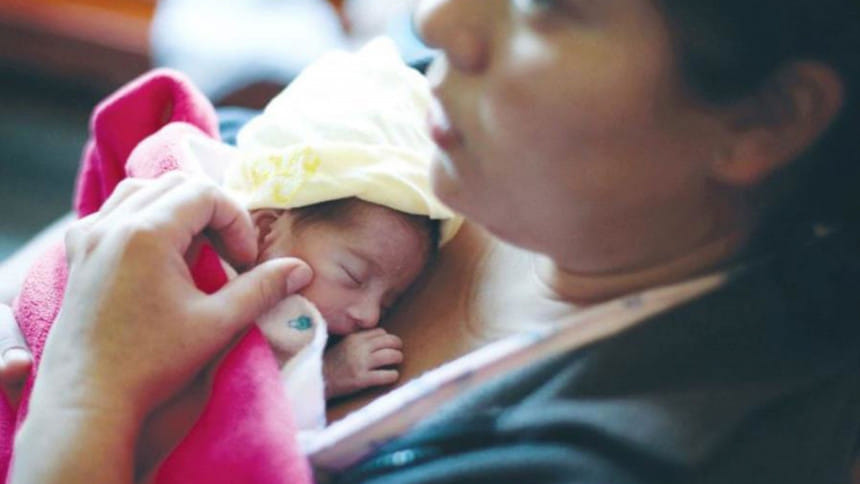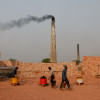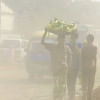Premature births in Dhaka on rise for poor air

Premature births and babies born with low birth weight is on the rise in Dhaka city due to poor air quality, found a recent study.
Between 2014 and 2017, the incidents of low birth weight increased from 20.6 percent to 36 percent while pre-term births jumped from 9 percent to 15.2 percent due to the mothers' exposure to air pollution.
The International Centre for Diarrhoeal Disease Research, Bangladesh (ICDDR,B) and the Maternal and Child Health Training Institute of the Directorate General of Family Planning conducted the study on 3,206 samples.
"Our study was done in a very data scarce setting, but it presents comparatively clear evidence of the strong association between these negative birth outcomes and air pollution," said Mahin Al Nahian, research investigator of ICDDR,B, while sharing the findings of the study yesterday.
Yesterday, Dhaka topped the list of cities around the world with the worst air quality.
"Air pollution in Dhaka has become a critical public health concern," said the report titled 'Air pollution and pregnancy outcomes in Dhaka'.
The overall situation is likely to worsen as the government has initiated several large construction projects within and around the city without any pollution control measures.
The study, which is based on normal birth samples, found female foetuses are at higher risk of low birth weight while males are more prone to premature birth due to poor air quality.
And exposure to air pollution during the second trimester causes the most harm to the babies as it hampers the development of foetal organs and physiological processes.
It may be that nutrient transfer from the mother's blood across the placental barrier is impeded by exposure to airborne contaminants or simply the transfer of oxygen may be negatively affected.
This constrains foetal growth.
The study was published in the Journal of Climate Change and Health.

 For all latest news, follow The Daily Star's Google News channel.
For all latest news, follow The Daily Star's Google News channel. 









Comments